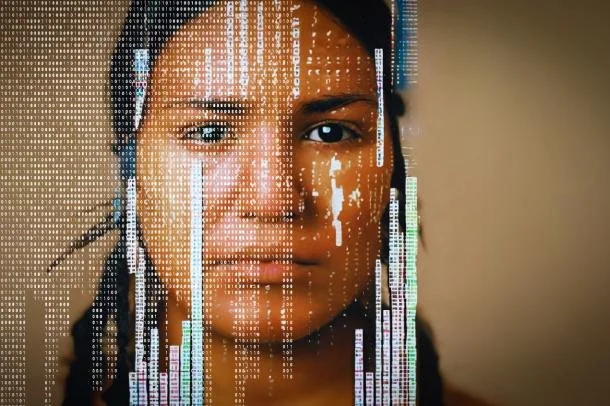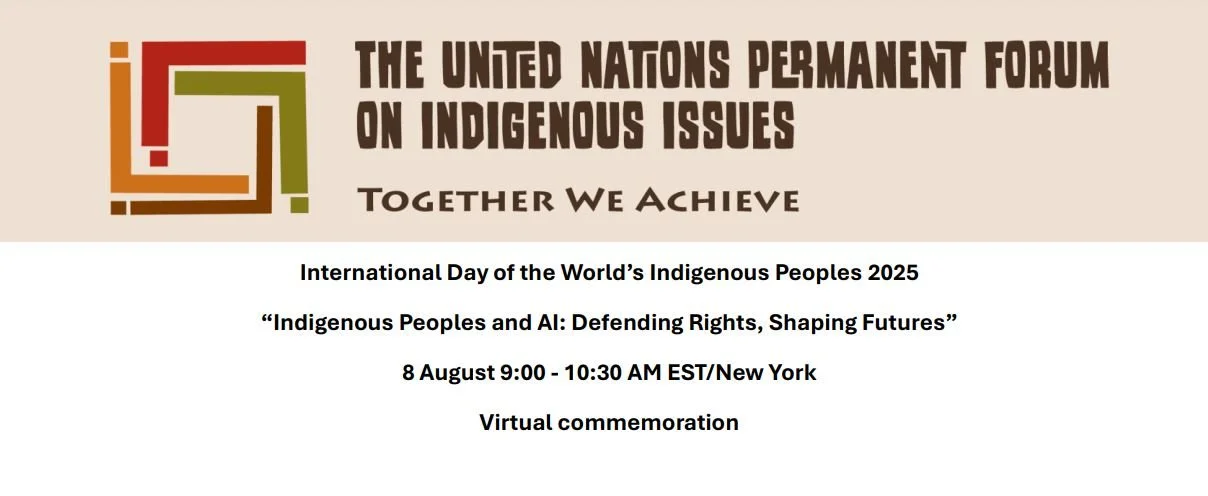Purpose: By resolution 49/214 of 23 December 1994, the United Nations General Assembly decided that the International Day of the World's Indigenous Peoples shall be observed on 9 August every year. The date marks the day of the first meeting, in 1982, of the UN Working Group on Indigenous Populations of the Sub-Commission on the Promotion and Protection of Human Rights. with the goal of strengthening international cooperation for solving problems faced by indigenous peoples in areas such as human rights, the environment, development, education, health, economic and social development. Next year will be the beginning of a new decade for the indigenous community: the celebration of the Decade of Indigenous Languages 2022 – 2032, a door that was opened previously in 2019 with the celebration of the International Year of Indigenous Languages. For the many indigenous peoples disproportionately impacted by COVID-19 worldwide, plans to build back better and rethink social contracts must include listening to their voices, needs and concerns, obtaining their free, prior and informed consent, and include the collective and individual rights of indigenous peoples recognized in the United Nations Declaration on the Rights of Indigenous Peoples.
FORUM: “Indigenous Peoples and AI: Defending Rights, Shaping Futures.” International Day of the World's Indigenous Peoples 2025. While Artificial Intelligence (AI) can support cultural revitalization, youth empowerment, and even adaptation to climate chance, it often reinforces bias, exclusion, and misrepresentation towards Indigenous Peoples. Indigenous Peoples continue to face barriers to accessing new technologies, as recognized through the World Summit of the Information Society process, especially in rural areas, widening digital divides. Yet, Artificial Intelligence (AI) also holds potential opportunities for Indigenous Peoples. When developed inclusively and ethically, AI can support language revitalization and enhance cultural preservation. For example, AI-driven tools can help document endangered Indigenous languages, contributing to their revitalization and preservation for future generations. Most AI systems are built without Indigenous input, risking the misuse of their data, knowledge, and identities. Besides, massive data centers can also impact Indigenous lands, resources, and ecosystems. This is a new issue added to the barriers to accessing new technologies, especially in rural areas, excluding Indigenous from full participation in AI-related processes. To unlock AI’s full potential, Indigenous Peoples must be respected as rights-holders, co-creators, and decision-makers. Meaningful inclusion, data sovereignty, and culturally grounded innovation are key to ensuring AI empowers their communities. The upcoming International Day of the World’s Indigenous Peoples will put a spotlight on this through its theme, Indigenous Peoples and AI: Defending Rights, Shaping Futures. Let’s leave no one behind. Spread the word and Follow the conversations with the hashtags: #IndigenousPeoples, #9August, #WeareIndigenous, #IndigenouspeoplesDay.
EVENTS: On August 8th, 2025 from 9:00 - 10:30 a.m. EDT, New York time at United Nations Headquarters. The virtual commemoration will take place online. It will include an opening segment and statement from the Chair of the Permanent Forum on Indigenous Issues. A moderated panel with invited speakers will consider and discuss how Indigenous Peoples rights can be ensured in the age of AI, and the associated challenges and opportunities Indigenous Peoples face. Indigenous Peoples, Member States, UN entities, civil society, and the public are all invited to attend. Interpretation will be available between English and Spanish, kindly provided by FILAC.Join us to mark the International Day of the World's Indigenous Peoples 2025 to debate on the theme, Indigenous Peoples and AI: Defending Rights, Shaping Futures. Register for this online event!
From April 21st to May 2nd 2025 at the United Nations Headquarters was held the 24th Session of the UN Permanent Forum on Indigenous Issues, the theme of the 24th Session was "Implementing the United Nations Declaration on the Rights of Indigenous Peoples within United Nations Member States and the United Nations system, including identifying good practices and addressing challenges". The session was organized by Aluki Kotierk, newly elected Chair and Mr. Li Junhua, UN Under-Secretary-General for Economic and Social Affairs. Learn more.
PUBLICATIONS:It is essential that Indigenous Peoples play an active role in shaping the future of AI. The UN Permanent Forum on Indigenous Issues recognized this in its recommendations from the 24th session in 2025, highlighting the importance of meaningful inclusion of Indigenous Peoples in AI development, governance and application. Read the UNDESA publication”Ensuring Indigenous Peoples’ rights in the age of AI.“
The United Nations General Assembly adopted a 2024 resolution emphasizing that human rights and fundamental freedoms must be respected, protected and promoted throughout the life cycle of artificial intelligence systems. Respecting Indigenous Peoples’ rights, data sovereignty, and promoting Indigenous-led innovation are key to realizing the positive potential of AI and avoiding perpetuating harm.
PODCASTS: Artificial intelligence (AI) is reshaping our world at an unprecedented pace. For Indigenous Peoples, this technology can bring both significant challenges and promising opportunities. AI systems often reflect biases embedded in the data they are trained on—data that frequently excludes or misrepresents Indigenous Peoples’ voices and knowledge. Without safeguards put in place, AI can reinforce harmful biases, exclusion, and lead to further appropriation of Indigenous Peoples' culture and knowledge without their consent. Listen to the audio-podcasts!
CAMPAIGN MATERIALS: The upcoming International Day of the World’s Indigenous Peoples will put a spotlight on this through its theme, Indigenous Peoples and AI: Defending Rights, Shaping Futures. It is a timely moment to foster dialogue and action for an inclusive, rights-based digital transformation. For all digital communications assets and key messages, you can check out our Trello board. Get the communications materials!
WHY WE CELEBRATE THE DAY?
The International Day of the World's Indigenous Peoples is observed on 9 August each year to raise awareness and protect the rights of the world's indigenous population. There are an estimated 370 million indigenous people in the world, living across 90 countries. They make up less than 5 per cent of the world's population, but account for 15 per cent of the poorest. This event also recognizes the achievements and contributions of indigenous people in improving world issues such as environmental protection.
HOW TO GET INVOLVED!
PARTNERSHIPS
Promote Indigenous traditional knowledge for the benefit of all.
Highlight the role of Indigenous women in preserving and passing on traditional knowledge.
Recognize Indigenous women as knowledge keepers of traditional food systems and medicines.
Recognize them as champions of Indigenous languages and cultures.
Defend the environment; Land rights and Indigenous peoples’ human rights.
Amplify the voices of Indigenous women.
The International Day of the World's Indigenous Peoples is hosted in partnership with The United Nations Permanent Forum on Indigenous Issues; The Department of Economic and Social Affairs Indigenous Peoples; The FAO - Indigenous peoples; The IFAD - Indigenous peoples; The UNDP - Indigenous peoples ; The World Bank - Indigenous peoples; The Internacional Labour Organization - Indigenous and tribal peoples; The UNESCO - Indigenous peoples; The UN Women - Indigenous women; The UN Human Rights -Office of the High Commissioner - Indigenous Peoples; Civil society organizations and non-governmental Organizations.




